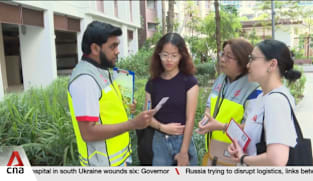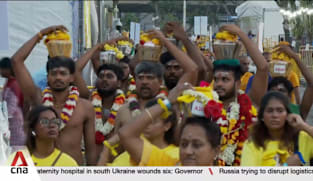Committee of Supply 2023 debate, Day 1: Indranee Rajah on well-being of Singaporeans at the heart of population strategies
Singapore's resident total fertility rate hit an all-time low of 1.05 last year. This was partly due to the Tiger year in the lunar calendar, which is generally associated with lower births among the Chinese. But beyond that, there are longer-term global societal trends at play, which apply to Singapore. While the aspiration to marry and have children remains strong, more people are postponing marriage and having children or having fewer children. Minister in the Prime Minister's Office Indranee Rajah highlighted these concerns in Parliament on Friday (Feb 24) and stressed the urgent need to take stronger action to ease the burden of bringing up children. She said Singapore's population strategies take into account the views shared in the Forward Singapore exercise. They also seek to achieve a stronger social compact by strengthening assurance for Singaporeans, growing opportunities for Singaporeans through a vibrant and resilient economy, strengthening solidarity for a more cohesive society, as well as planning ahead for a better home for generations to come. Ms Indranee said the Government developed various scenarios to stress test its population strategies and allow for a range of possible outcomes. She said the planning perimeter of a population of 6.9 million remains relevant for the 2030s. She said in the coming years, Singapore's demographic realities will become more keenly felt. The Government will continue to work hard to build a country with the well-being of Singaporeans at the heart of it, with opportunities for all, a society where families matter and are supported and where they can be "united even in diversity", she said.
Singapore's resident total fertility rate hit an all-time low of 1.05 last year. This was partly due to the Tiger year in the lunar calendar, which is generally associated with lower births among the Chinese. But beyond that, there are longer-term global societal trends at play, which apply to Singapore. While the aspiration to marry and have children remains strong, more people are postponing marriage and having children or having fewer children. Minister in the Prime Minister's Office Indranee Rajah highlighted these concerns in Parliament on Friday (Feb 24) and stressed the urgent need to take stronger action to ease the burden of bringing up children. She said Singapore's population strategies take into account the views shared in the Forward Singapore exercise. They also seek to achieve a stronger social compact by strengthening assurance for Singaporeans, growing opportunities for Singaporeans through a vibrant and resilient economy, strengthening solidarity for a more cohesive society, as well as planning ahead for a better home for generations to come. Ms Indranee said the Government developed various scenarios to stress test its population strategies and allow for a range of possible outcomes. She said the planning perimeter of a population of 6.9 million remains relevant for the 2030s. She said in the coming years, Singapore's demographic realities will become more keenly felt. The Government will continue to work hard to build a country with the well-being of Singaporeans at the heart of it, with opportunities for all, a society where families matter and are supported and where they can be "united even in diversity", she said.



















